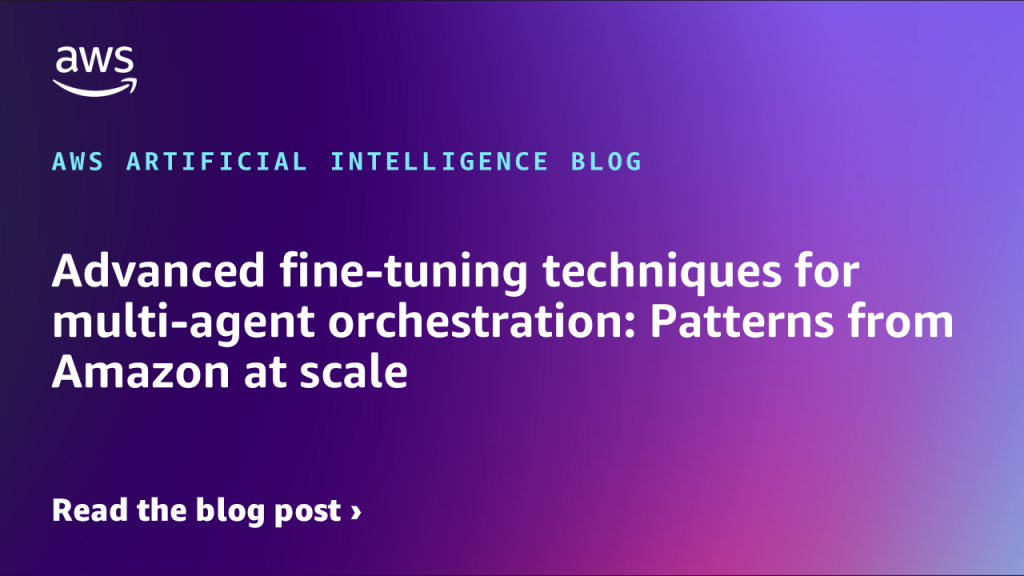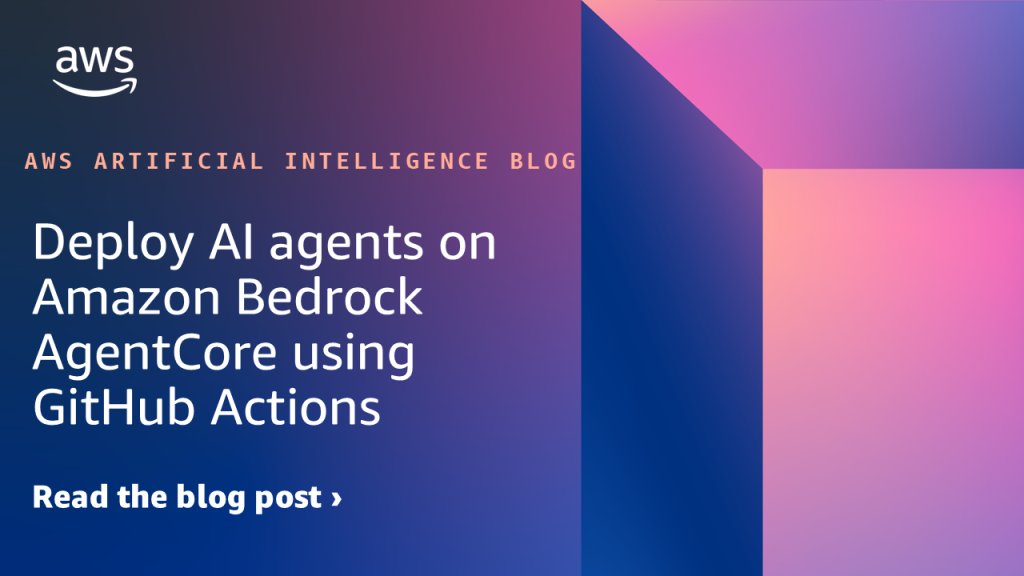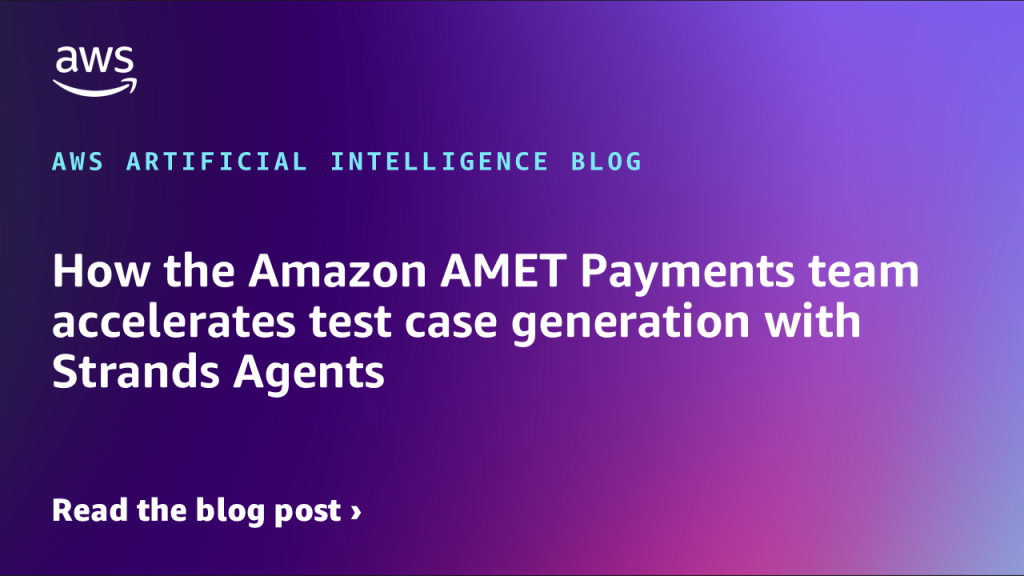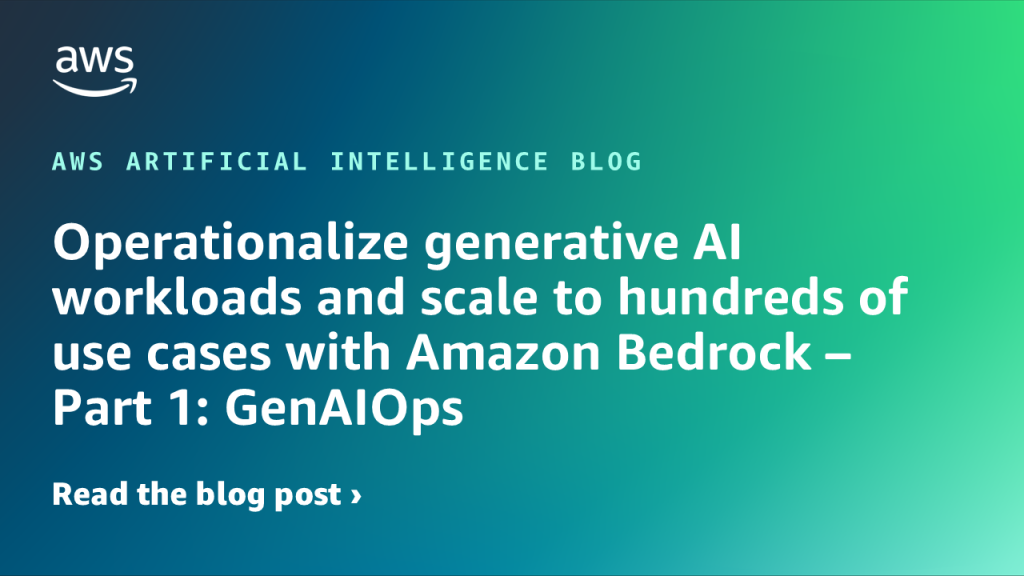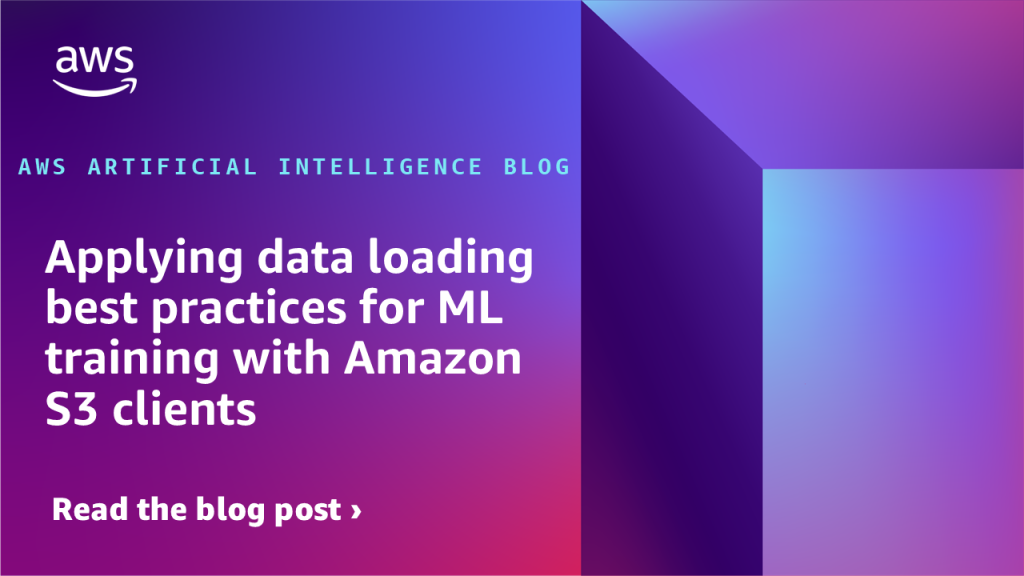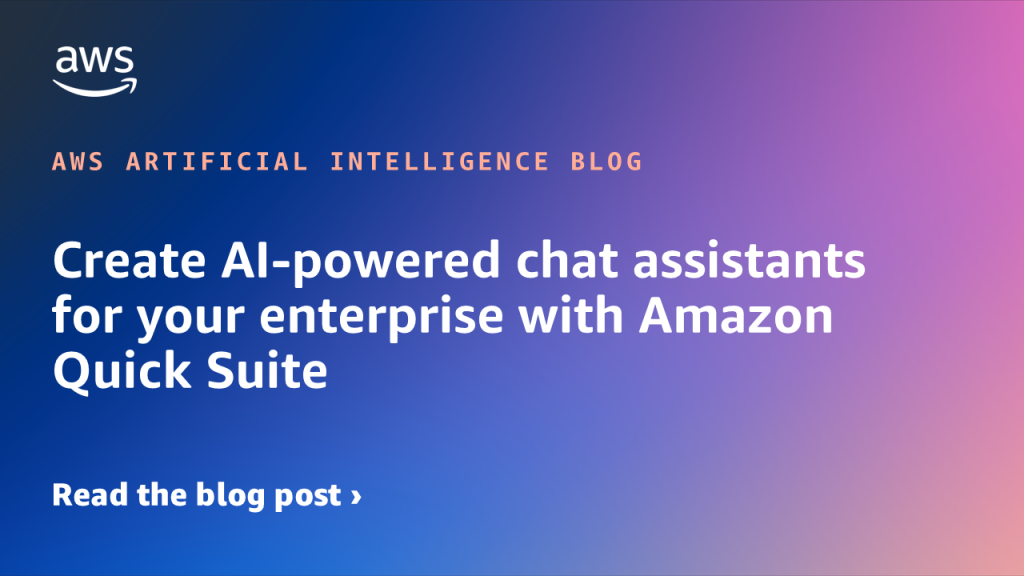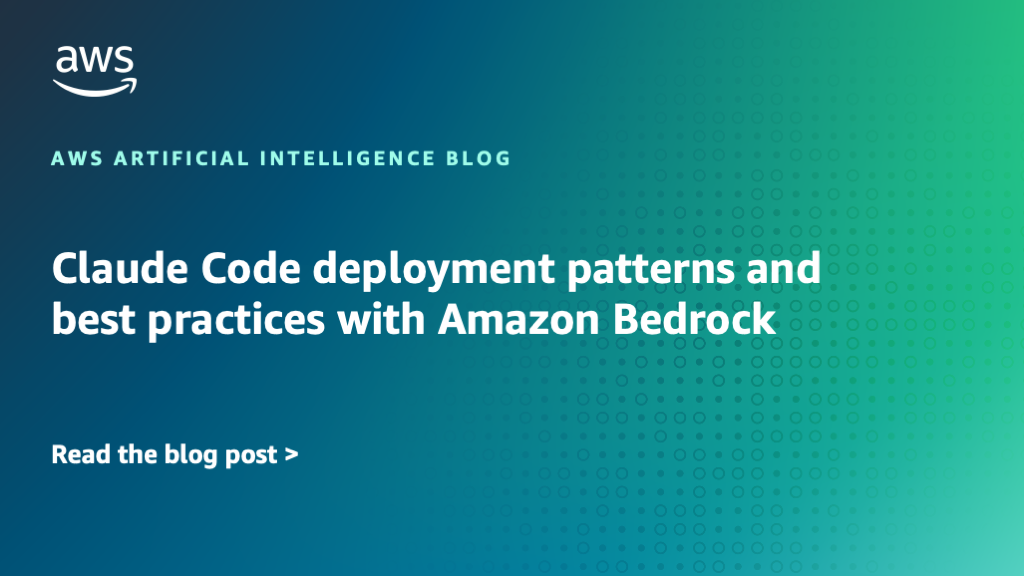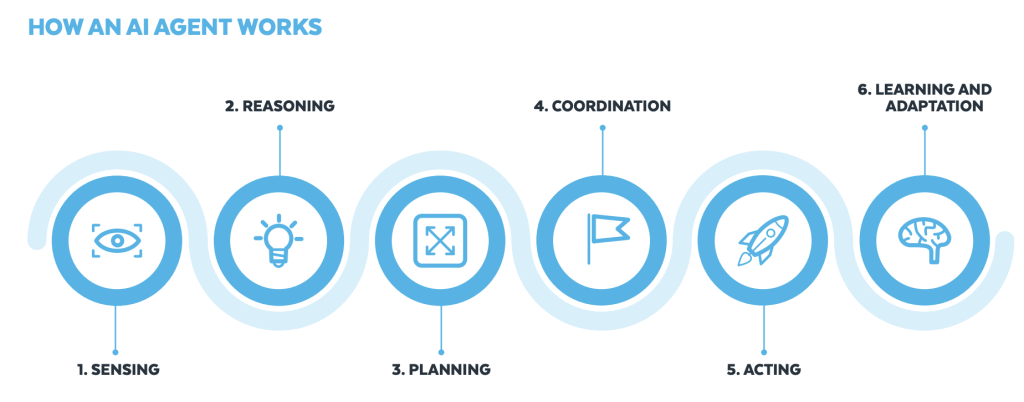Artificial Intelligence
Category: Best Practices
Advanced fine-tuning techniques for multi-agent orchestration: Patterns from Amazon at scale
In this post, we show you how fine-tuning enabled a 33% reduction in dangerous medication errors (Amazon Pharmacy), engineering 80% human effort reduction (Amazon Global Engineering Services), and content quality assessments improving 77% to 96% accuracy (Amazon A+). This post details the techniques behind these outcomes: from foundational methods like Supervised Fine-Tuning (SFT) (instruction tuning), and Proximal Policy Optimization (PPO), to Direct Preference Optimization (DPO) for human alignment, to cutting-edge reasoning optimizations such as Grouped-based Reinforcement Learning from Policy Optimization (GRPO), Direct Advantage Policy Optimization (DAPO), and Group Sequence Policy Optimization (GSPO) purpose-built for agentic systems.
Deploy AI agents on Amazon Bedrock AgentCore using GitHub Actions
In this post, we demonstrate how to use a GitHub Actions workflow to automate the deployment of AI agents on AgentCore Runtime. This approach delivers a scalable solution with enterprise-level security controls, providing complete continuous integration and delivery (CI/CD) automation.
How the Amazon AMET Payments team accelerates test case generation with Strands Agents
In this post, we explain how we overcame the limitations of single-agent AI systems through a human-centric approach, implemented structured outputs to significantly reduce hallucinations and built a scalable solution now positioned for expansion across the AMET QA team and later across other QA teams in International Emerging Stores and Payments (IESP) Org.
Operationalize generative AI workloads and scale to hundreds of use cases with Amazon Bedrock – Part 1: GenAIOps
In this first part of our two-part series, you’ll learn how to evolve your existing DevOps architecture for generative AI workloads and implement GenAIOps practices. We’ll showcase practical implementation strategies for different generative AI adoption levels, focusing on consuming foundation models.
Applying data loading best practices for ML training with Amazon S3 clients
In this post, we present practical techniques and recommendations for optimizing throughput in ML training workloads that read data directly from Amazon S3 general purpose buckets.
Create AI-powered chat assistants for your enterprise with Amazon Quick Suite
In this post, we show how to build chat agents in Amazon Quick Suite. We walk through a three-layer framework—identity, instructions, and knowledge—that transforms Quick Suite chat agents into intelligent enterprise AI assistants. In our example, we demonstrate how our chat agent guides feature discovery, use enterprise data to inform recommendations, and tailors solutions based on potential to impact and your team’s adoption readiness.
Building AI-Powered Voice Applications: Amazon Nova Sonic Telephony Integration Guide
Available through the Amazon Bedrock bidirectional streaming API, Amazon Nova Sonic can connect to your business data and external tools and can be integrated directly with telephony systems. This post will introduce sample implementations for the most common telephony scenarios.
Claude Code deployment patterns and best practices with Amazon Bedrock
In this post, we explore deployment patterns and best practices for Claude Code with Amazon Bedrock, covering authentication methods, infrastructure decisions, and monitoring strategies to help enterprises deploy securely at scale. We recommend using Direct IdP integration for authentication, a dedicated AWS account for infrastructure, and OpenTelemetry with CloudWatch dashboards for comprehensive monitoring to ensure secure access, capacity management, and visibility into costs and developer productivity .
Build an agentic solution with Amazon Nova, Snowflake, and LangGraph
In this post, we cover how you can use tools from Snowflake AI Data Cloud and Amazon Web Services (AWS) to build generative AI solutions that organizations can use to make data-driven decisions, increase operational efficiency, and ultimately gain a competitive edge.
Using Spectrum fine-tuning to improve FM training efficiency on Amazon SageMaker AI
In this post you will learn how to use Spectrum to optimize resource use and shorten training times without sacrificing quality, as well as how to implement Spectrum fine-tuning with Amazon SageMaker AI training jobs. We will also discuss the tradeoff between QLoRA and Spectrum fine-tuning, showing that while QLoRA is more resource efficient, Spectrum results in higher performance overall.
